In addition to Weibo, there is also WeChat
Please pay attention

WeChat public account
AutoBeta


2024-11-23 Update From: AutoBeta autobeta NAV: AutoBeta > News >
Share
AutoBeta(AutoBeta.net)01/31 Report--
On January 30, Nissan announced that after months of constructive discussions with Renault, the two sides had reached a restructuring agreement to reshape their 20-year alliance, which would then be reviewed and formally decided at a board meeting.
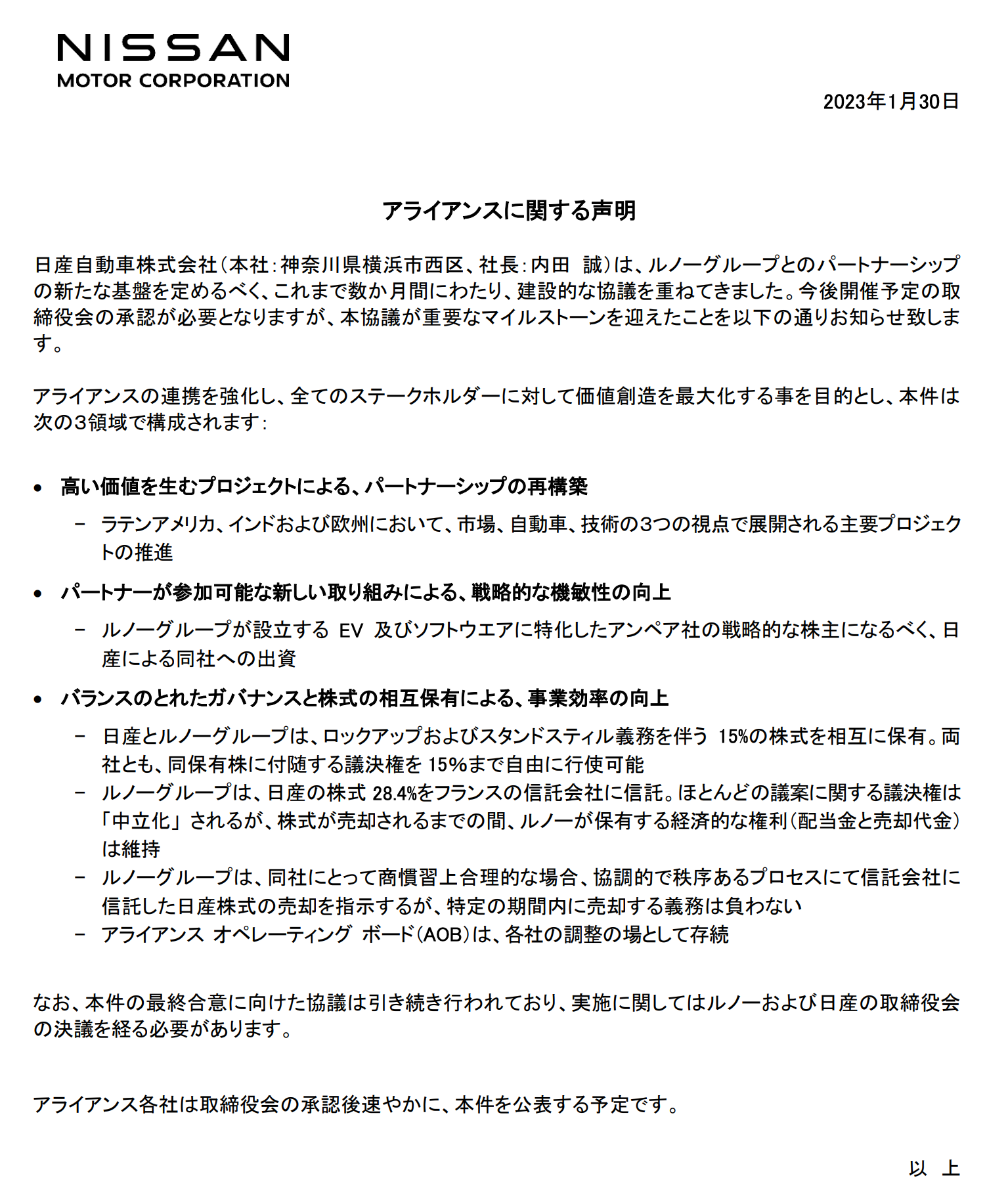
In addition to the deal, Nissan will also invest in Ampere, Renault's new electric car company, and the two companies also plan to carry out projects in places such as Europe, India and Latin America, but details have not been announced.
Renault's alliance with Nissan dates back to 1999. In 1998, Nissan was mired in a debt crisis because of mismanagement. Ford and Daimler had intended to buy Nissan but hesitated because it was in a debt crisis. Nissan, which had lost money for eight years in a row, finally turned to Renault, hoping to reverse Nissan's plight. In exchange, Renault bought a stake in Nissan, becoming Nissan's largest shareholder and forming a Renault-Nissan alliance with Nissan.
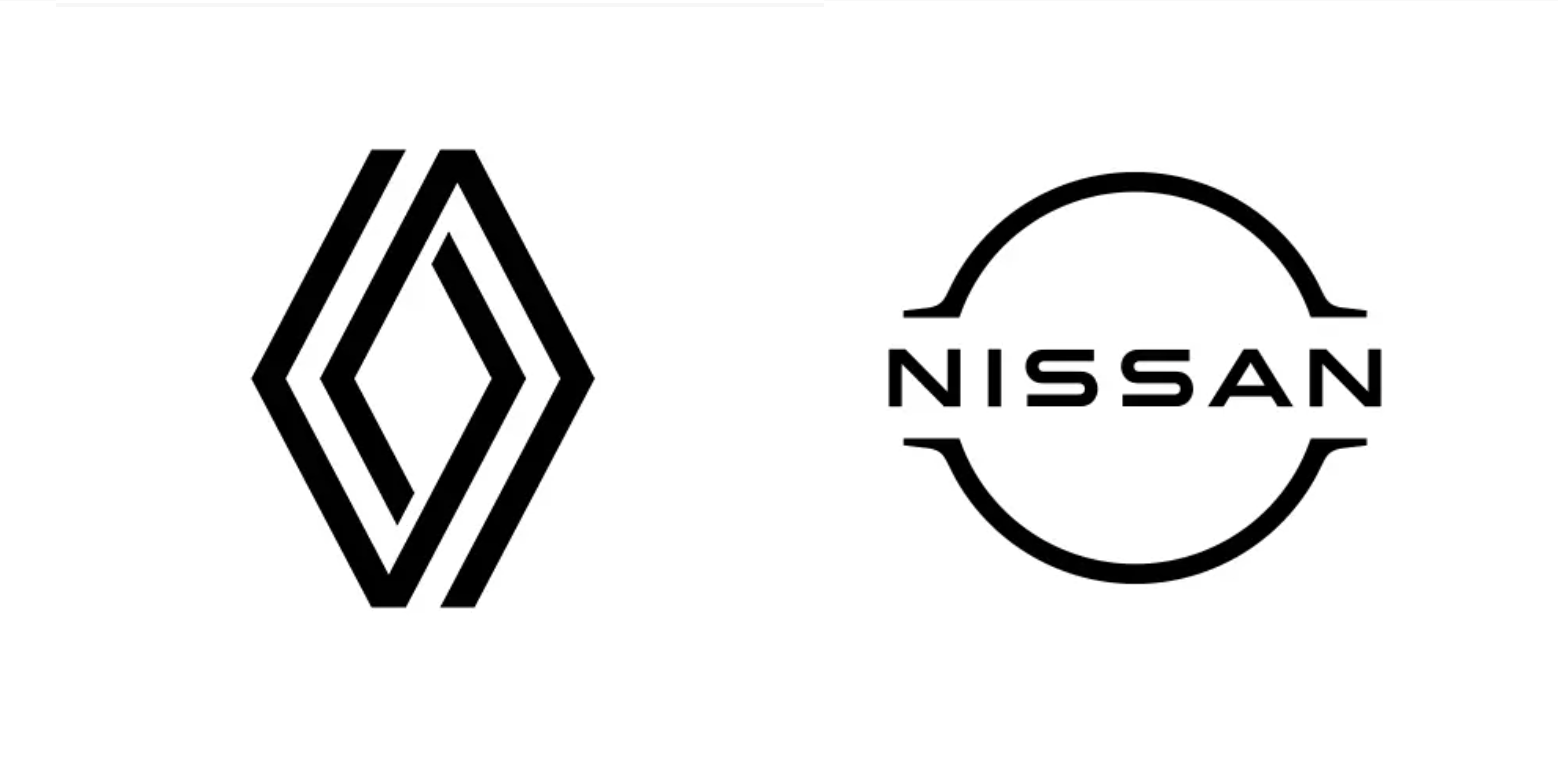
In 2000, Carlos Ghosn, vice president of Renault, became chief executive of Nissan and proposed a "Nissan revival plan" that led Nissan to turn losses into profits. In 2003, Nissan and Dongfeng established Dongfeng Motor Co., Ltd., which officially entered the Chinese market. In the same year, Nissan took a 15 per cent stake in Renault, but the cross-shareholding relationship between Renault and Nissan was not equal. Renault owned 44.4 per cent of Nissan with voting rights, while Nissan owned 15 per cent of Renault only and had no voting rights. As a result, Renault can influence Nissan's related operations, while Nissan's impact on Renault's operations is almost negligible.
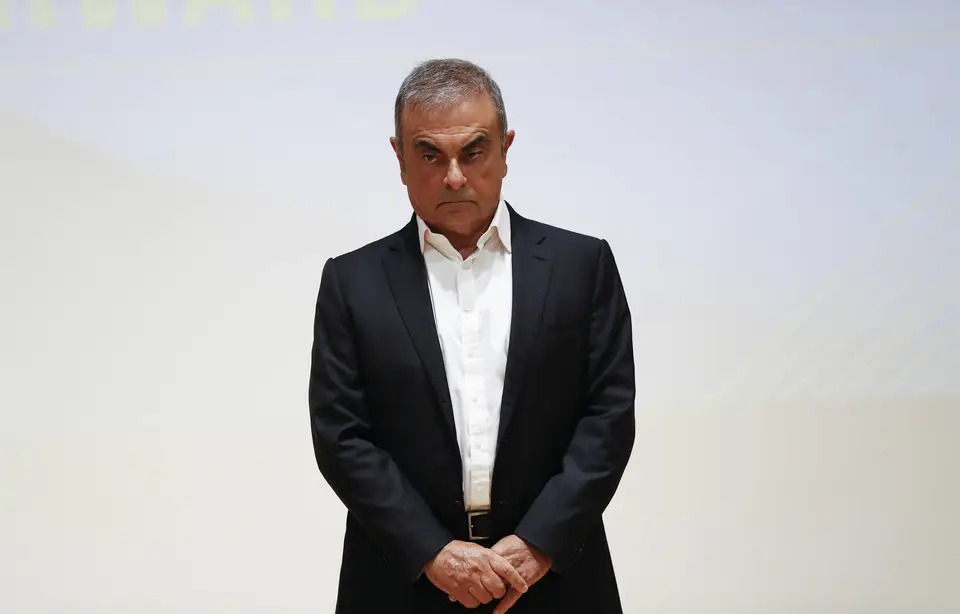
After Nissan turned a profit, Renault renewed its plan for Nissan to sell 1 million vehicles a year, achieve zero debt and achieve the highest operating profit margin of 8 per cent for the world's carmakers. In 2005, Nissan not only completed the plan, but also sales continued to grow, in the context of Nissan's rapid development, the relationship with Renault also gradually intensified. In 2011, for example, Nissan sold 4.67 million vehicles worldwide, up 14.4 per cent from a year earlier, while Renault sold only 2.72 million vehicles, up 3.6 per cent from a year earlier. However, the unequal shareholding ratio between partners hurt Nissan's interests and began to oppose the unequal investment relationship between the two sides.
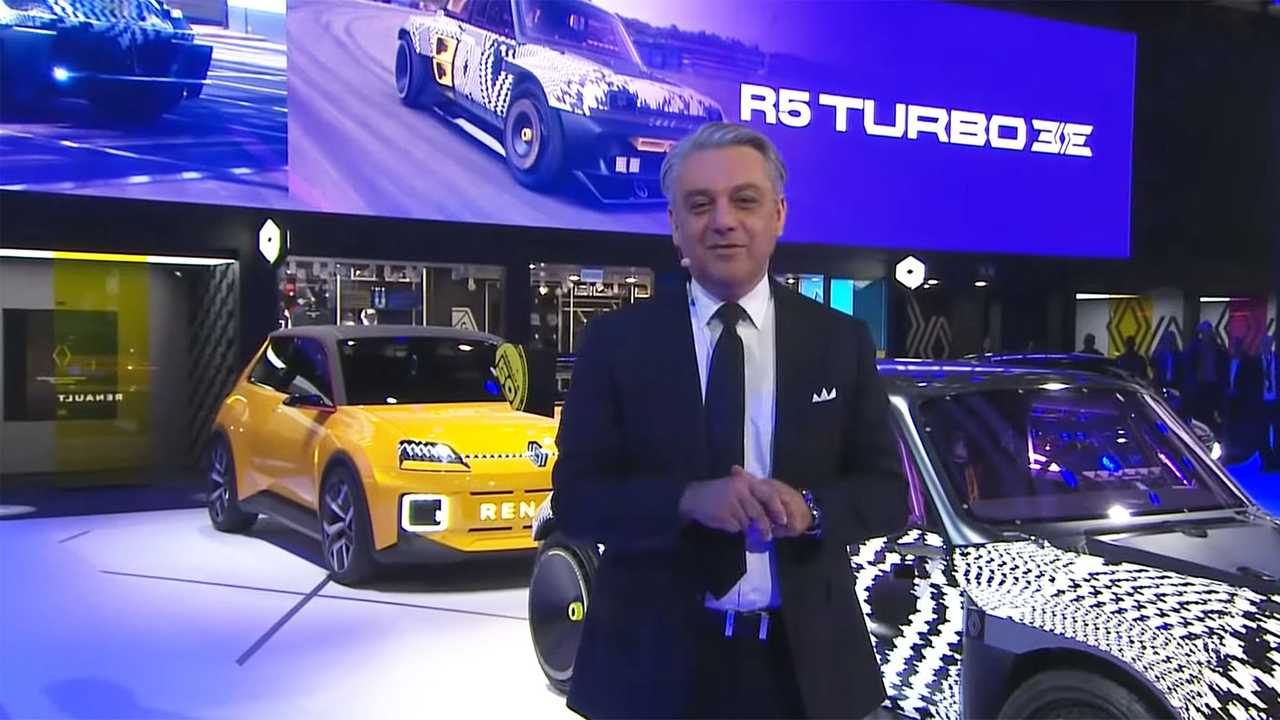
In February 2016, Nissan announced at a press conference in Tokyo that it would buy back some of its shares from Renault, another struggle against its unequal relationship with Renault. In the face of Nissan's proposal to buy back shares, Renault agreed to sell some of its stake in Nissan, but also said it would ensure that its "shareholding ratio within Nissan remains the same". Today, seven years later, Renault voluntarily gave up some of its shares in Nissan, reducing its stake from 43% to 15%, trying to balance the investment relationship as much as possible.
The sale of part of Renault's stake in Nissan will not only facilitate the raising of large amounts of funds to support its own electrified development, but also ease the long-term tense investment relationship with Nissan.
In February 2022, Renault announced plans to split the electric vehicle and internal combustion engine business into separate divisions, which will be named Horse and headquartered outside France. It is reported that without new investors, Renault will strike a 50:50 equity deal with Geely. In addition, the electric vehicle business, which will be named Ampere, is headquartered in France and plans to launch IPO in the second half of the year.
In order to seek development in the Chinese market, Renault chose to cooperate with Geely. In January 2022, Renault and Geely announced that they would produce and sell Renault-branded fuel vehicles and smart hybrid vehicles in South Korea based on Geely's CMA architecture and hybrid technology, and export them to markets outside South Korea. The new car will be produced by a factory in Busan, South Korea, and is expected to be mass produced in 2024. In November 2022, Renault announced that Geely Holdings, Geely Motor and Renaults.a.s. Sign a non-binding framework agreement proposing the establishment of a joint venture company in which Geely and Renault will each own 50 per cent of the new company. The new joint venture company will become an independent global provider of powertrain solutions, produce next-generation hybrid systems and develop low-carbon and low-emission technologies through five global R & D centers, the announcement said. At the time of launch, the new company is expected to provide products to Renault and Geely brands, including Renault, Dacia, Geely, Volvo, Lecker, Proton, as well as Nissan and Mitsubishi. In the future, the new company can also provide powertrain technology to third-party brands.
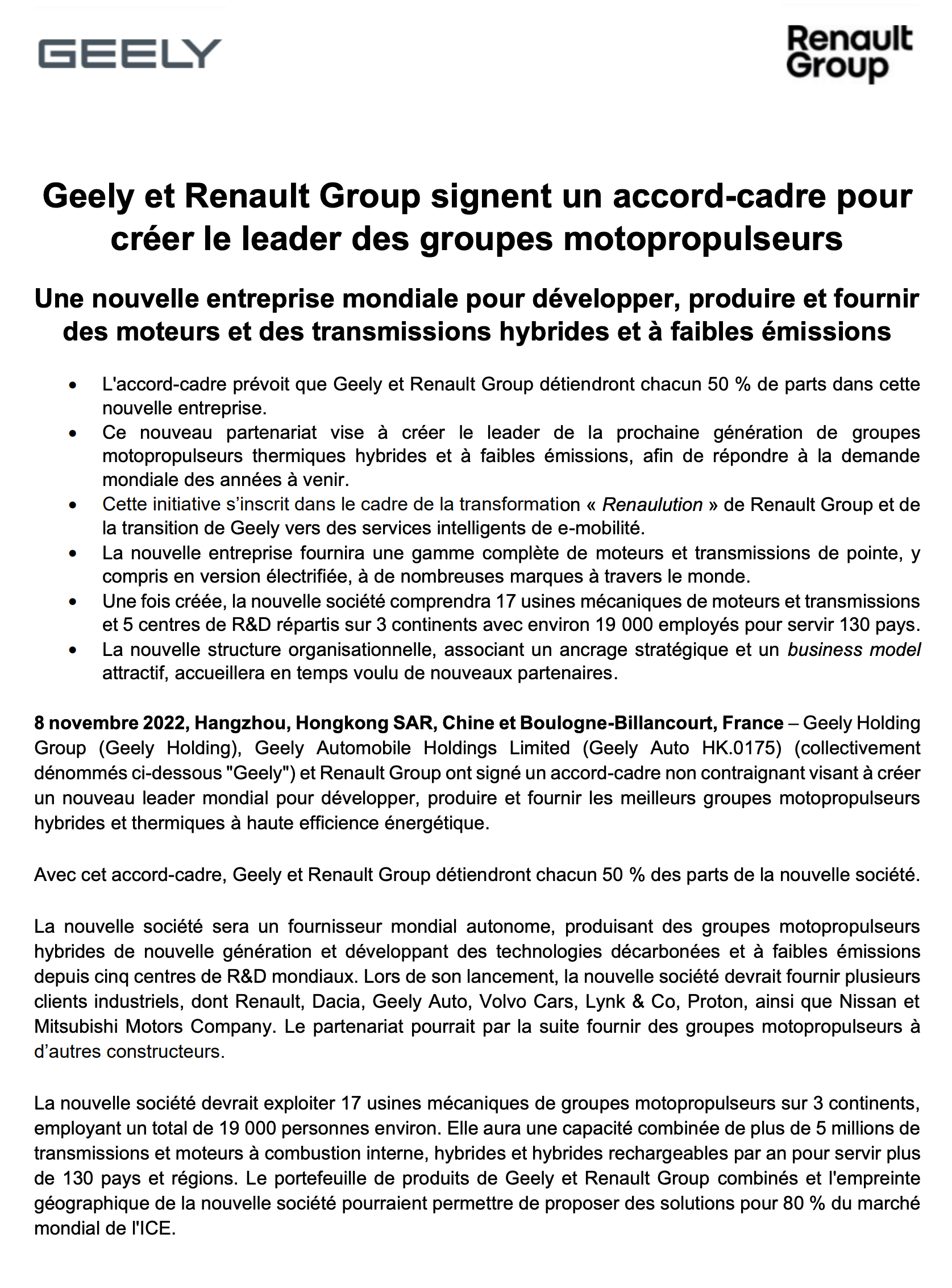
However, Nissan opposes Renault's plan to sell its internal combustion engine business because it does not want the technology it developed with Renault to be shared with a Chinese company, according to the Financial Times. Of course, now Renault's stake in Nissan has dropped to 15%, which may mean dandruff on both sides, and the cooperation between Renault and Geely will usher in new progress.
Renault's annual sales have fallen for four years in a row! According to the data, Renault sold 1466729 vehicles worldwide (excluding the Russian market) in 2022, down 9.4 per cent from a year earlier. Of its top 10 markets, Renault has grown only in Turkey and Colombia. In France, its largest market, Renault brand sales fell 15 per cent year-on-year to 335971 vehicles in 2022, while Brazil, the second-largest market, was relatively stable, with 126689 vehicles sold for the year, and Germany, the third-largest market, fell 25 per cent to 100338.
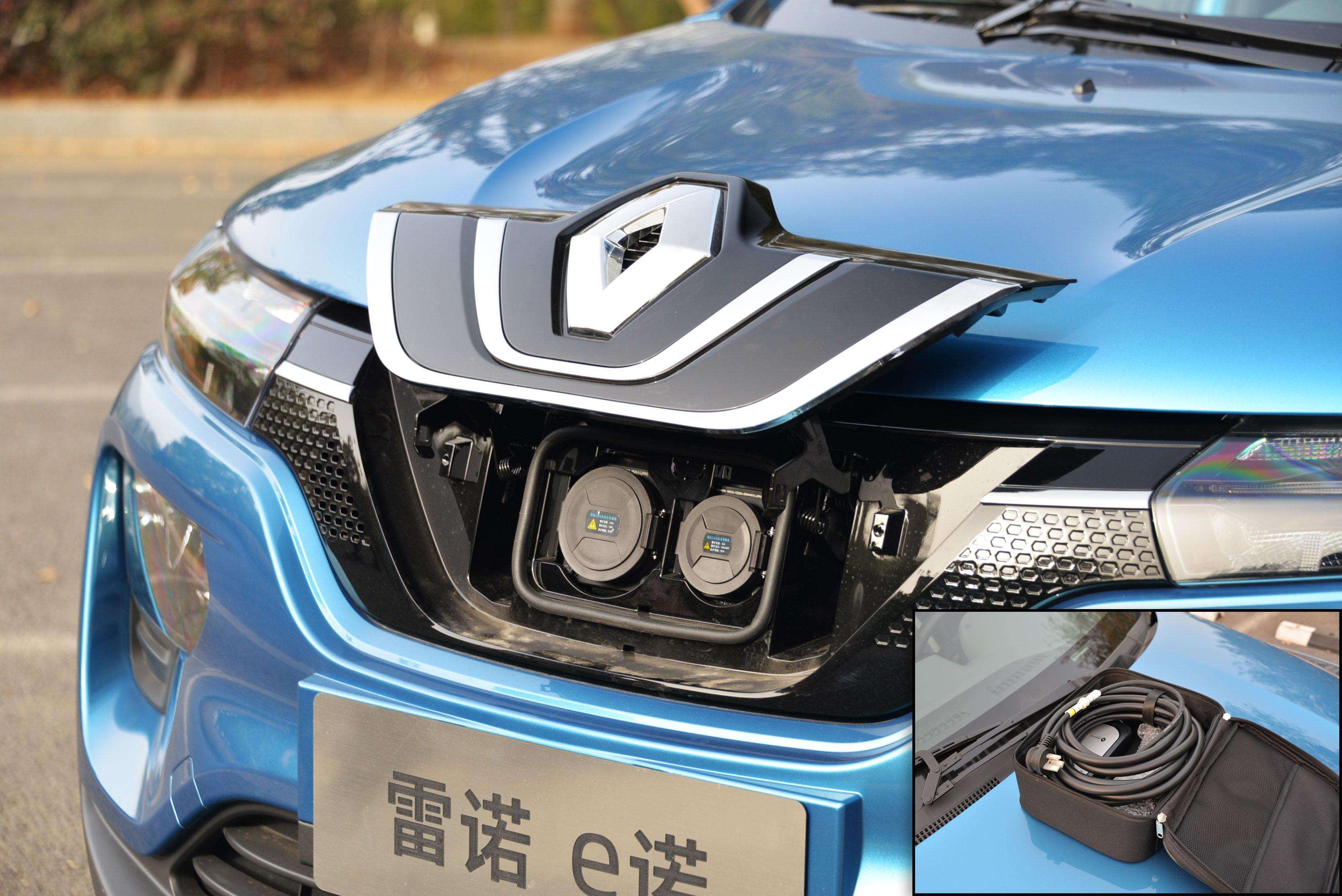
The supply chain challenges caused by COVID-19 's epidemic crisis and chip shortage have had a significant impact, especially Renault. In may 2022, Renault announced that it had agreed to sell its entire stake in Renault Russia to the Moscow municipal government and its 67.69 per cent stake in AvtoVAZ to NAMI, a Russian government-backed automotive research and development centre. Renault sold only 39578 vehicles in Russia in 2022, down 70 per cent from a year earlier, according to data.
Welcome to subscribe to the WeChat public account "Automotive Industry Focus" to get the first-hand insider information on the automotive industry and talk about things in the automotive circle. Welcome to break the news! WeChat ID autoWechat
Views: 0
*The comments in the above article only represent the author's personal views and do not represent the views and positions of this website. If you have more insights, please feel free to contribute and share.





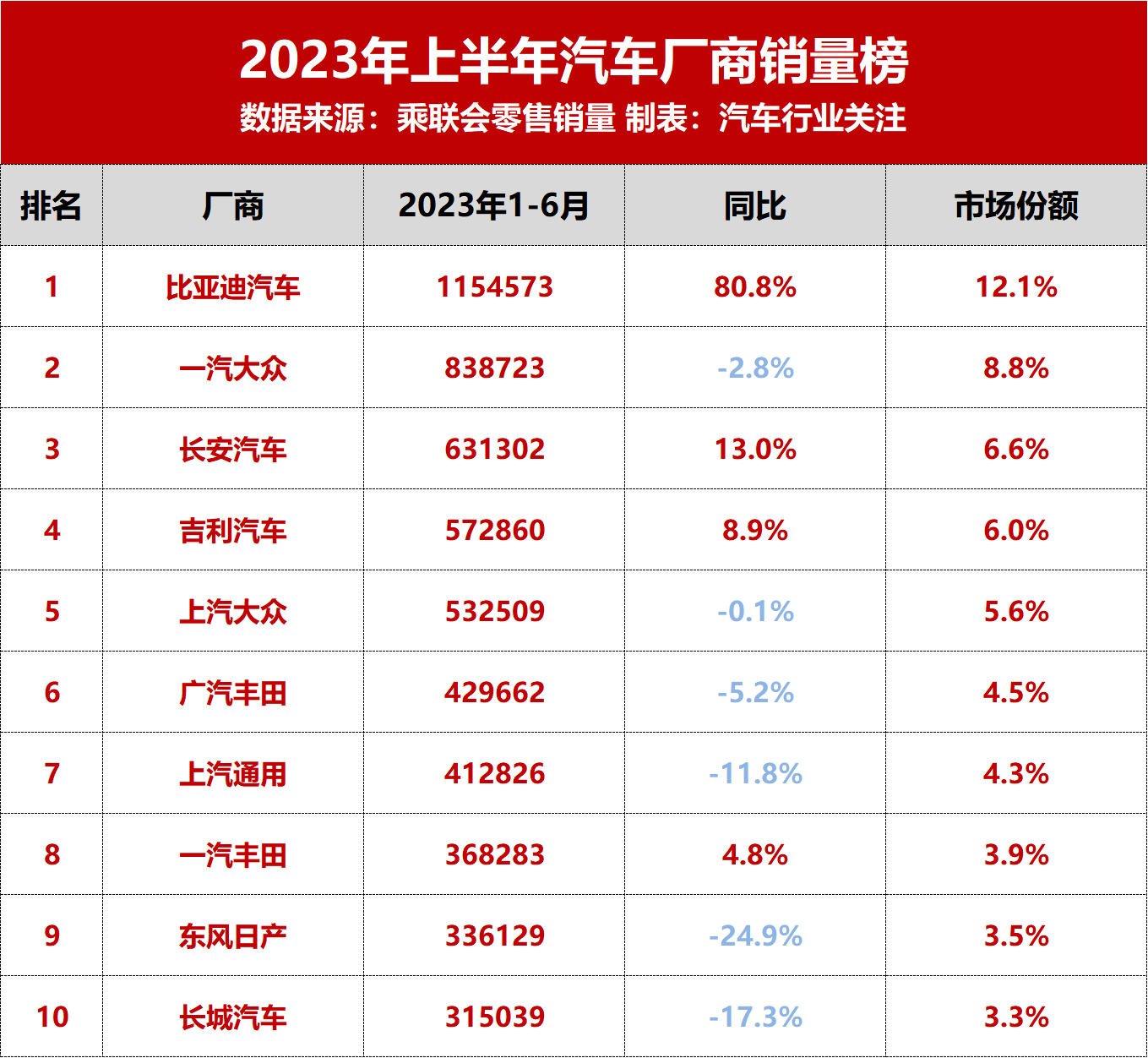
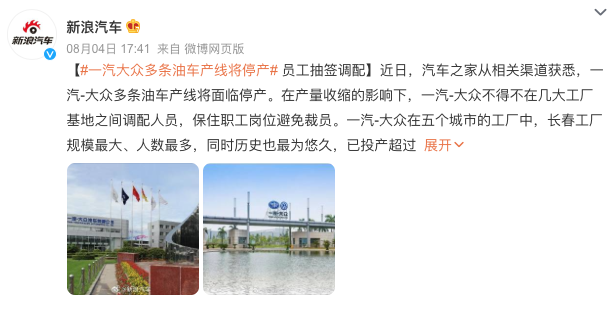

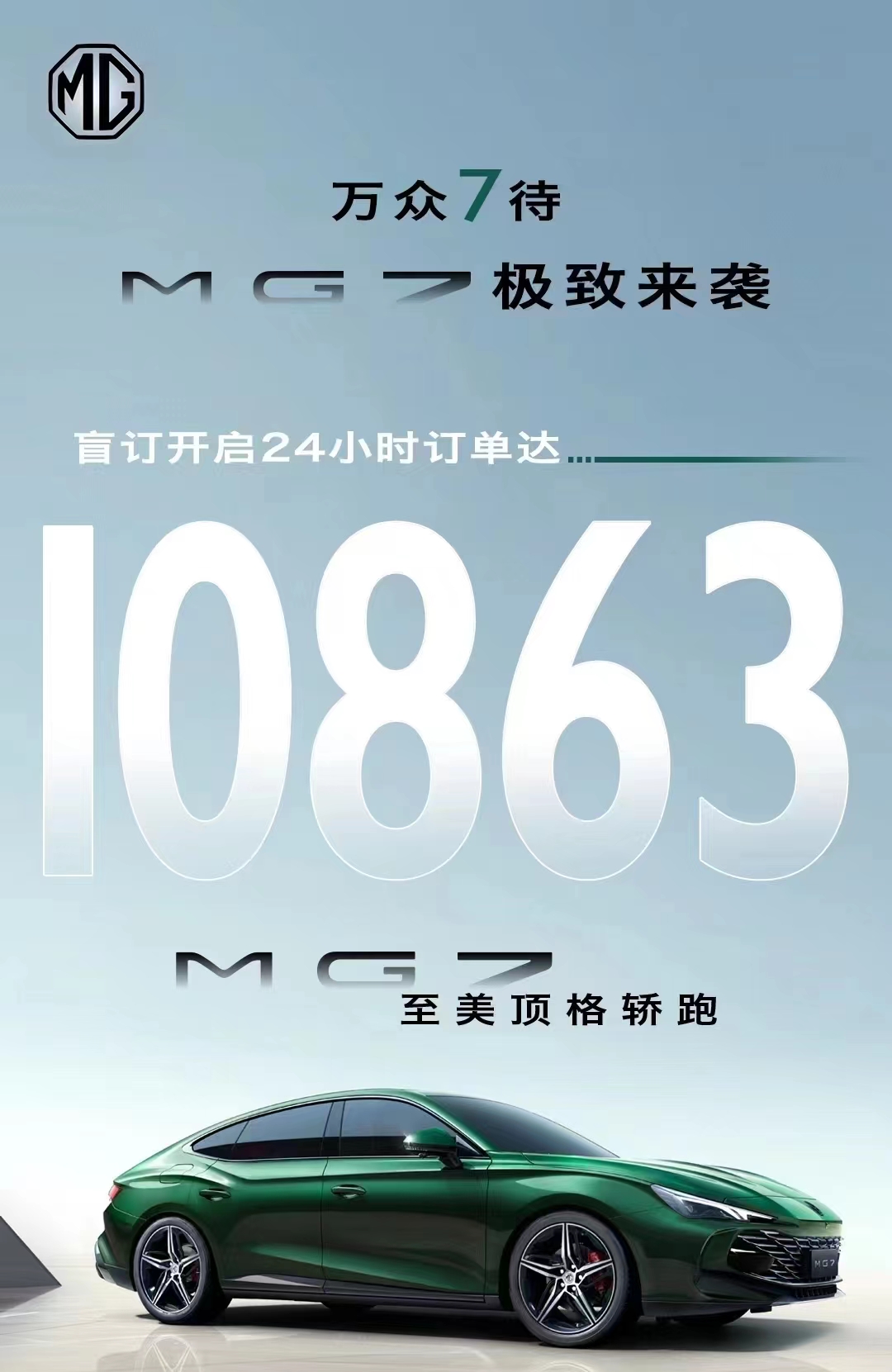


© 2024 AutoBeta.Net Tiger Media Company. All rights reserved.